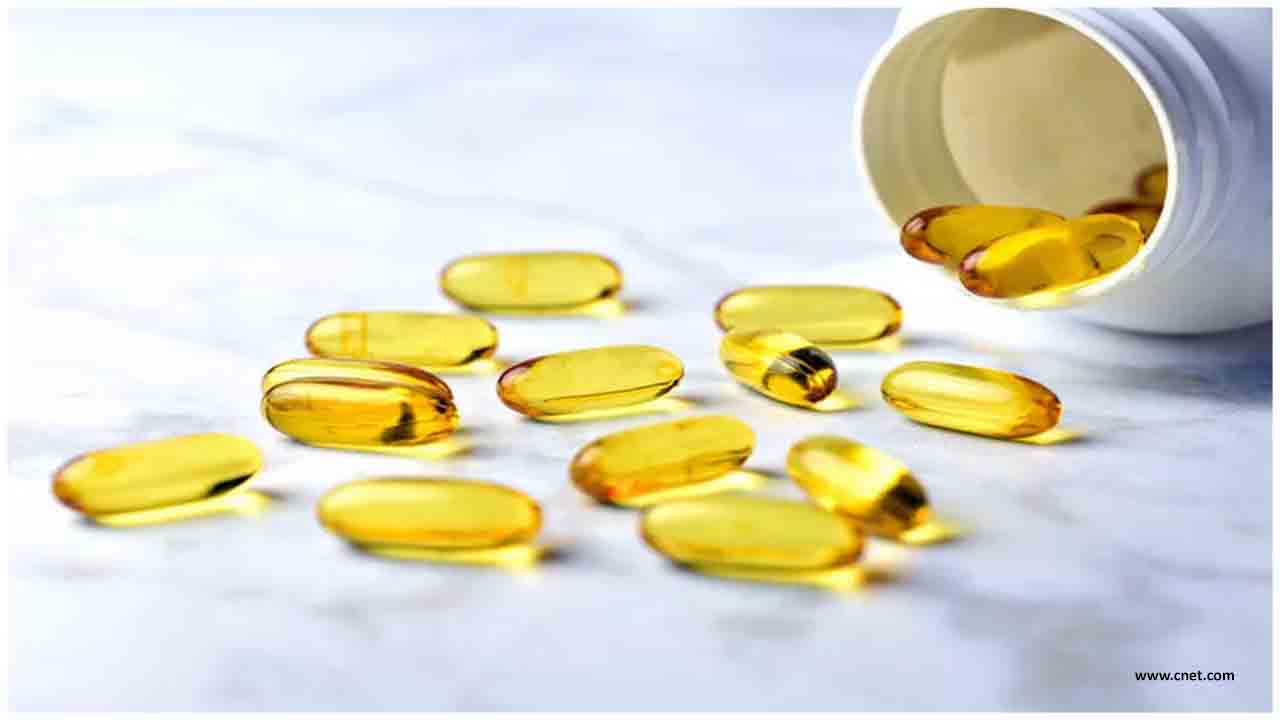The prevailing press was overwhelmed for the current week with reports hypothesizing on what job, assuming any, nutrient D may play in decreasing the seriousness of COVID-19 disease.
Observational information looking at results from different nations propose reverse connections between nutrient D levels and the seriousness of COVID-19 reactions, just as mortality, with the further recommendation of an impact of nutrient D on the safe reaction to contamination.
In any case, different examinations question such a connection, including any relationship between nutrient D fixation and contrasts in COVID-19 seriousness by ethnic gathering.
And keeping in mind that a few analysts and clinicians accept individuals ought to get tried to check whether they have sufficient nutrient D levels during this pandemic — specifically bleeding-edge human services laborers — most specialists express the most ideal approach to guarantee that individuals have satisfactory degrees of nutrient D during COVID-19 is to just take supplements at right now suggested levels.
This is particularly significant given the reality, that during 'lockdown' situations, numerous individuals are investing more energy than expected inside.
Clifford Rosen, MD, a senior researcher at Maine Medical Center's Research Institute in Scarborough, has been inquiring about nutrient D for a long time.
"There's no randomized controlled preliminary without a doubt, and that is the highest quality level," he revealed to Medscape Medical News, and "the observational information is so bewildered, it's hard to know."
Regardless of whether from diet or supplementation, having sufficient nutrient D is significant, particularly for those at the most elevated danger of COVID-19, he says. All things considered, powerful information supporting a job of nutrient D in avoidance of COVID-19, or as any sort of 'treatment' for the contamination, are right now inadequate.
Rose Anne Kenny, MD, teacher of clinical gerontology at Trinity College Dublin, Ireland, as of late co-authored an article enumerating a converse relationship between nutrient D levels and mortality from COVID-19 across nations in Europe.
"At no stage are any of us saying this is guaranteed, however, there's a likelihood that [vitamin D] — a low-hanging organic product — is a contributory factor and we can take care of business now," she revealed to Medscape Medical News.
Kenny is requiring the Irish government to officially change their proposals. "We approach the Irish government to refresh rules as an issue of direness and urge all grown-ups to take [vitamin D] supplements during the COVID-19 emergency." Northern Ireland, some portion of the UK, likewise has not yet made this suggestion, she said.
In the meantime, Harpreet S. Bajaj MD, MPH, a rehearsing endocrinologist from Mount Sinai Hospital, Toronto, Canada, stated: "Nutrient D could have any of three potential jobs in a chance for COVID-19 and additionally its seriousness: no job, just a marker, or a causal factor."
Bajaj says — as do Rosen and Kenny — that randomized controlled preliminaries (RCTs) are painfully expected to help determine whether there is a particular job of nutrient D.
"Up to that point, we should keep on following set up general wellbeing suggestions for nutrient D supplementation, notwithstanding following COVID-19 counteraction direction and developing rules for COVID-19 treatment."
Does Vitamin D Have a Role to Play in Immune Modulation?
One hypothesis as of now flowing is that, if nutrient D has any task to carry out in adjusting reaction to COVID-19, this might be using a blunting of the invulnerable framework response to the infection.
In an ongoing preprint study, Ali Daneshkhah, Ph.D., and associates from Northwestern University, Chicago, Illinois, cross-examined medical clinic information from China, France, Germany, Italy, Iran, South Korea, Spain, Switzerland, United Kingdom, and the United States.
In particular, the danger of serious COVID-19 cases among patients with extreme Vitamin D insufficiency was 17.3%, while the proportional figure for patients with ordinary Vitamin D levels was 14.6% (a decrease of 15.6%).
"This potential impact might be ascribed to Vitamin D's capacity to smother the versatile invulnerable framework, controlling cytokine levels and subsequently lessening the danger of creating extreme COVID-19," state the analysts.
In like manner, JoAnn E. Manson, MD, head of the Division of Preventive Medicine at Brigham and Women's Hospital in Boston, Massachusetts, in an ongoing analysis for Medscape, noted proof from an observational investigation from three South Asian emergency clinics, in which the pervasiveness of nutrient D lack was a lot higher among those with extreme COVID-19 ailment contrasted and those with the mellow disease.
"We likewise realize that nutrient D has a resistant tweaking impact and can bring down irritation, and this might be pertinent to the respiratory reaction during COVID-19 and the cytokine storm that has been illustrated," she noted.
Rosen said he is eager to tune in on the issue of a potential job of nutrient D in the resistant tweak.
"I've been an enormous cynic as it so happens, and noisily reprimanded the information for sitting idle. I am astonished at myself for saying there may be some impact," he disclosed to Medscape Medical News.
"A great many people don't get this [cytokine storm] yet of those that do, it's hazy why they do. Perhaps if you are nutrient D adequate, it may have some effect not far off on your reaction to a disease," Rosen said. "Nutrient D may actuate proteins significant in tweaking the capacity of macrophages of the invulnerable framework."
Ethnic Minorities Disproportionately Affected
It is likewise very much perceived that COVID-19 excessively influences dark and Asian minority ethnic (BAME) people.
Be that as it may, on the issue of nutrient D in this specific situation, one ongoing friend explored study utilizing UK Biobank information found "no proof to help a potential job for nutrient D focus to disclose helplessness to COVID-19 contamination either generally speaking or in clarifying contrasts between ethnic gatherings."
"Nutrient D is probably not going to be the basic instrument for the higher hazard saw in the dark and minority ethnic people and nutrient D supplements are probably not going to give a compelling mediation," Claire Hastie, Ph.D., from the University of Glasgow, UK, and associates finish up.
In any case, this hasn't prevented two endocrinologists from speaking to individuals from the British Association of Physicians of Indian Origin (BAPIO) to get their nutrient D levels tried.
"Dark and Asian Minority Ethnic (BAME) populace, particularly forefront staff, ought to get their Vitamin D3 levels checked and get fitting substitution as required," state Parag Singhal, MD, of Weston General Hospital, Weston-Super-Mare, UK, and David C. Anderson, a resigned endocrinologist, in a letter to BAPIO individuals seen by Medscape.
To be sure, they recommend a promoter portion of 100,000 IU as an erratic for BAME human services staff that should raise nutrient D levels for 2 to 3 months. They allude to a methodical survey that presumes that "solitary nutrient D3 dosages ≥300,000 IU are best at improving nutrient D status… for as long as 3 months."
Remarking on the thought, Rosen commented that when all is said in done, the high portion 50,000-100,000-500,000 IU given as a coincidental doesn't give any more noteworthy advantage than a solitary portion of 1000 IU every day, then again, actually the blood levels go up speedier and higher.
"Truly there is no proof that getting to super-elevated levels of nutrient D gives a more noteworthy advantage than typical levels," he said. "So if social insurance laborers speculate nutrient D insufficiency, day by day portions of 1000 IU appears to be sensible; regardless of whether they miss dosages, the blood levels are moderately steady."
On the particular inquiry of nutrient D needs in ethnic minorities, Rosen said while such people do have lower serum levels of nutrient D, the issue is whether there are significant clinical ramifications identified with this.
"The genuine inquiry is whether [ethnic minority individuals] have physiologically adjusted for this in different manners because these low levels have been so for a great many years. African Americans have lower nutrient D levels however they completely have preferred bones over Caucasians," he called attention to.
Testing and Governmental Recommendations During COVID-19
The US National Institutes of Health (NIH) all in all encourages 400 IU to 800 IU every day admission of nutrient D, contingent upon age, with those more than 70 years requiring the most noteworthy day by day portion. This will bring about blood levels that are adequate to keep up bone wellbeing and ordinary calcium digestion in solid individuals.
There are no extra proposals explicit to nutrient D admission during the COVID-19 pandemic, be that as it may.
Furthermore, Rosen calls attention to that there is no proof for mass screening of nutrient D levels among the US populace.
"US general wellbeing direction was pre-COVID, and I figure high-hazard people should consider their levels, for instance, somebody with fiery inside illness or liver or pancreatic sickness. These individuals are at higher hazard in any case, and it could be because their nutrient D is low," he said.
"Avoid the test and guarantee you are getting satisfactory degrees of nutrient D whether using diet or supplement [400-800 IU] per day]," he proposed. "It won't hurt."
The UK's Public Health England (PHE) explained their recommendation on nutrient D supplementation during COVID-19. Alison Tedstone, Ph.D., boss nutritionist at PHE, stated: "Numerous individuals are investing more energy inside and may not get all the nutrient D they need from daylight. To secure their bone and muscle wellbeing, they ought to consider taking a day by day supplement containing 10 micrograms [400 IU] of nutrient D."
Be that as it may, "there is no adequate proof to help to suggest Vitamin D for diminishing the danger of COVID-19," she pushed.

 Vitamin D has been sidelined for its ability to better immunity here is a complied summary by a combination of researchers all across the globe on it.
Vitamin D has been sidelined for its ability to better immunity here is a complied summary by a combination of researchers all across the globe on it.

































